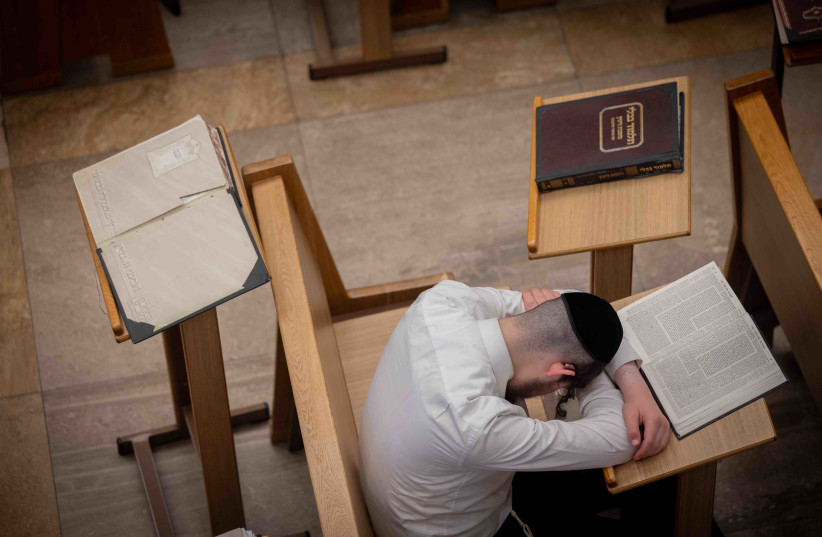The High Court of Justice on Thursday night issued its sensational decision endorsing a universal IDF draft, including the ultra-Orthodox (haredi) population, bringing to a theoretical end weeks of squabbling and disagreements.
From April 1, although in reality deferring most enforcement of the ruling until August 9, the decision largely accepted the recommendation of the Attorney-General’s Office on invoking a legal universal draft across Israel.
As of Monday, some institutions or classes within institutions will already have their funds frozen, but on a larger scale, the freeze won’t take effect until August 9.
The High Court’s decision could also potentially destabilize Prime Minister Benjamin Netanyahu’s government if its two haredi parties, United Torah Judaism and Shas, decide to exit the government.
Shas chairman MK Aryeh Deri lambasted the decision in a written statement. “The interim decision that the High Court of Justice gave to immediately halt the yeshiva funding is a mark of Cain and an unprecedented mistreatment of Torah students in the land of the Jews.

“Shas will continue to fight for yeshiva students’ right to persevere in Torah and will consider its next steps,” Deri added.
The Degel Hatorah faction in the United Torah Judaism party expressed outrage at the decision, warning that they would not let it pass without a response.
“The High Court of Justice and the clerical system have decided on an all-out struggle against Torah scholars and Torah education, and they must prove to everyone that they’re in charge in this country, and they will also decide for us which coalition we will go to,” said Degel Hatorah.
This comes weeks after Israel’s Sefardi Chief Rabbi Yitzhak Yosef sparked controversy by threatening a mass haredi emigration from the country if the ultra-Orthodox were forced to join the army. "If they force us to join the army, we will all move abroad," Yosef said.
The High Court’s decision should be applauded as it theoretically brings to some form of closure an issue that has rankled Israeli society for many years. The landmark ruling reflects a principled stance towards ensuring that all citizens contribute to the defense of the nation, while also providing a transition period for adjustments to be made.
High Court signals to Israel that no one is exempt from duty
It sends a clear message that no individual or group should be exempt from their civic duties based on religious or cultural grounds. By endorsing a universal draft, the court has taken a bold step towards fostering a sense of unity and shared sacrifice among all sectors of Israeli society, at a time when the country needs it most. Demographically, the question of haredi enlistment will become even more urgent as the ultra-Orthodox become the dominant population in the country.
While there are many more stops along the journey of universal enlistment in Israel’s military, the government, the judiciary, and those who are willing to serve, many of whom are religious themselves and Torah students, cannot let themselves be held to ransom by one sector of society that refuses to contribute to the ongoing survival of the country.
Israel, unlike many countries around the world, desperately requires its military to survive. The country’s very existence depends upon its army, and the ongoing Israel-Hamas War proves how necessary it is.
Netanyahu has managed to survive in power despite a tumultuous period, beginning last year with continuous protests against the government's planned judicial reform, an act that was halted when Hamas terrorists crossed the border on October 7. He has since been dealing with the ongoing military operation in Gaza.
It would be ironic if Bibi’s bedfellows in government, the ultra-Orthodox parties, were to do what the judicial protests nor the war against Hamas have done and bring the government toppling.
The court’s ruling should serve as a catalyst for meaningful dialogue and engagement on the issue of military service instead of pathetic threats of emigration and political discord. It creates an opportunity for policymakers, religious leaders, and civil society stakeholders to come together and explore a peaceful solution to the national service question that Israel desperately needs to answer. Quite simply, Israel cannot keep kicking this particular can down the road any further.
